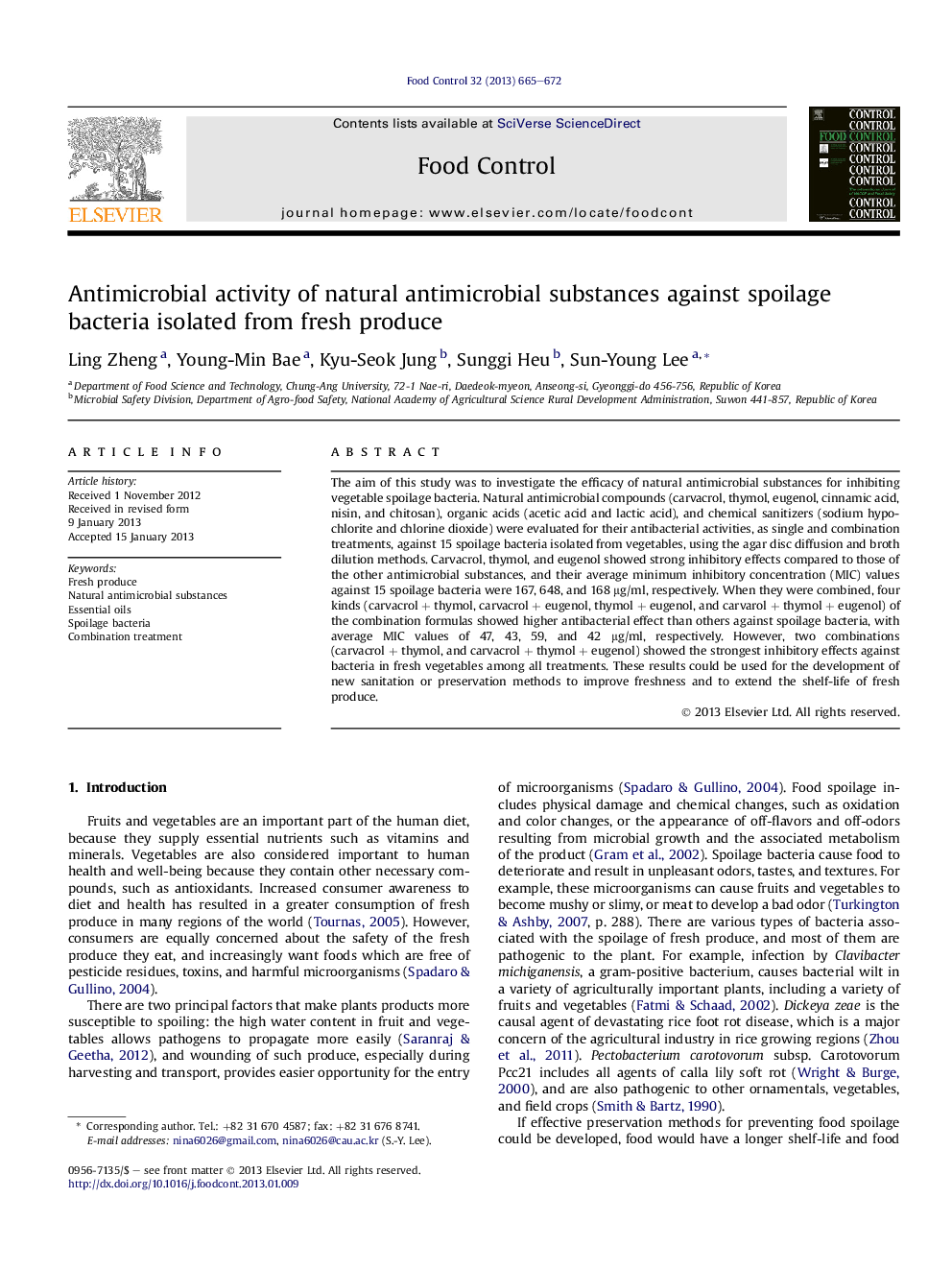| Article ID | Journal | Published Year | Pages | File Type |
|---|---|---|---|---|
| 4559420 | Food Control | 2013 | 8 Pages |
The aim of this study was to investigate the efficacy of natural antimicrobial substances for inhibiting vegetable spoilage bacteria. Natural antimicrobial compounds (carvacrol, thymol, eugenol, cinnamic acid, nisin, and chitosan), organic acids (acetic acid and lactic acid), and chemical sanitizers (sodium hypochlorite and chlorine dioxide) were evaluated for their antibacterial activities, as single and combination treatments, against 15 spoilage bacteria isolated from vegetables, using the agar disc diffusion and broth dilution methods. Carvacrol, thymol, and eugenol showed strong inhibitory effects compared to those of the other antimicrobial substances, and their average minimum inhibitory concentration (MIC) values against 15 spoilage bacteria were 167, 648, and 168 μg/ml, respectively. When they were combined, four kinds (carvacrol + thymol, carvacrol + eugenol, thymol + eugenol, and carvarol + thymol + eugenol) of the combination formulas showed higher antibacterial effect than others against spoilage bacteria, with average MIC values of 47, 43, 59, and 42 μg/ml, respectively. However, two combinations (carvacrol + thymol, and carvacrol + thymol + eugenol) showed the strongest inhibitory effects against bacteria in fresh vegetables among all treatments. These results could be used for the development of new sanitation or preservation methods to improve freshness and to extend the shelf-life of fresh produce.
► We investigated the effect of natural antimicrobials against spoilage bacteria. ► Some essential oils showed strong antimicrobial activity. ► Combination treatment of essential oils showed synergistic effects. ► These results could be used for developing new sanitizing method of fresh produce.
